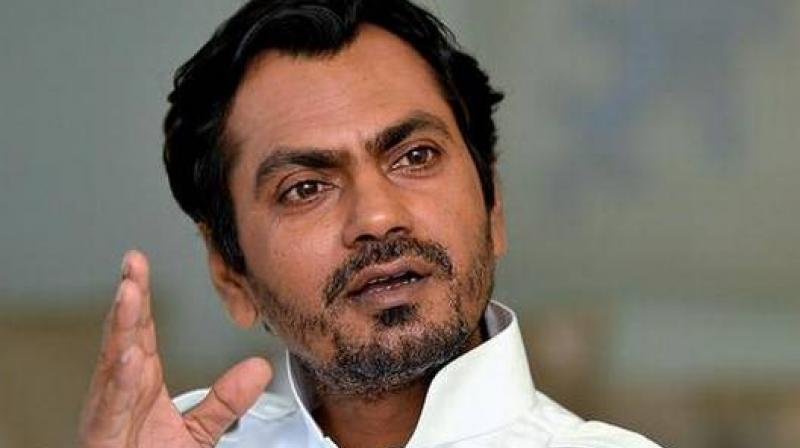Nawazuddin Siddiqui, one of Indian cinema’s most celebrated actors, has indeed made a startling revelation. Talking to The Brown Identity in a recent interview, the star weighed in on the discrimination and oppression he faced in his community for being dark-skinned and Muslim. And he continues to be discriminated against. “Please name me one dark-skinned superstar in Bollywood,” he asks. “You?” I suggest. “Well, thank you for saying that. But there’s still a truckload of discrimination against dark-skinned actors in Bollywood. Hollywood has overcome that prejudice. They have black superstars like Will Smith, Idris Elba, Kevin Hart and the late Chadwick Boseman alongside Tom Cruise and Chris Hemsworth,” replies Siddiqui.
According to him, dark-skinned actors are always cast in a particular kind of role in India. “If you see my career graph so far, I am always playing the gangster and killer wearing shabby clothes. The tuxedo look and suave moves are for the gora (fair-skinned) stars. For the dark-skinned, darkness is the chosen colour in life as in cinema, which is why when I started dressing up for Cannes and other international film festivals it was an out-of-body experience for me.”

Reflecting upon the practice of colour discrimination in Indian society, Siddiqui adds, “It is especially applicable to women. If a man has two daughters, one dark and the other fair, he will not stop singing praises for the latter, whereas the dark one gets frowned at no matter how much she excels in life. I faced this prejudice in my native village Budhana in Uttar Pradesh. I was short and dark and therefore considered a good-for-nothing. All the other men in my family are tall, not-dark and handsome,” laughs Nawaz.
Siddiqui recalled having to hear taunts from his relatives’ day in and day out. “I guess I’ve taken after my grandmother who was short and dark. I was always mocked by everyone. Also, though we were zamindars (landlords) my family owned far less land than others in our village. We were always shown our place at weddings and other gatherings. We’d get invitations but we would be subjected to rigorous criticism that left many like me scarred for life. I knew I had to escape that life,” he says.

Drawing parallels with his role in the recently released Serious Men, Siddiqui exclaims, “The character I play is a Dalit (a socially and economically backward caste in India). But he could have been any oppressed individual in India wanting a better life for his son. And a better life means, good education. But then, even if you escape the oppression granted to you by fate and your fraternity you don’t necessarily get acknowledgement for your achievements.”
Now, a big actor in Bollywood, Siddiqui is still the same wastrel to some of his village folks. “Nothing has changed in their minds. How could it? If they see a man walk out of his oppressed existence onto the other side, they turn a blind eye. The status quo must not be changed. So even now, for a part of my village fraternity I am still the dark-skinned, short and ugly Nawaz who can do nothing with his life,” he laments. “When they are told about my achievements, they sneeringly dismiss them as myths. One of my cousins is so rigidly opposed to the idea of me making anything of my life that he refused to believe that it was me on screen. In the one rickety theatre in my village, my film Gangs of Wasseypur was screened. Almost the entire village went to see it. My cousin also went. After the film he declared that the man on the screen was someone else, a lookalike. He actually refuses to accept that I have made something of my life.”
http://brownidentity.com/2020/10/12/in-a-surprising-move-janat-mirza-supports-ban-on-tiktok-heres-why/
How does he react to this kind of blind and incurable prejudice? “I believe what Nelson Mandela once said, ‘Our world is not divided by race, color, gender, or religion. Our world is divided into wise people and fools. And fools divide themselves by race, color, gender or religion.’ I’ve seen the kind of fame and fortune that I’ve never dreamt of,” he mentions. Today, the same Nawaz who was once considered short, dark and ugly in his village is called handsome in the international media. “I suppose success changes the perception of beauty. When you are doing well everything about you is appreciated. But for those who wanted to make sure I remain downtrodden I’ll always be down there,” he concludes.

